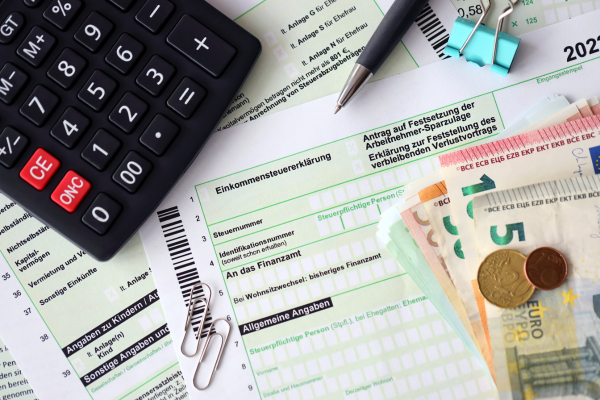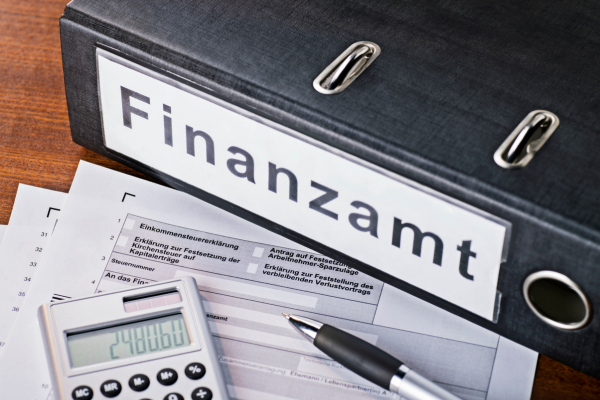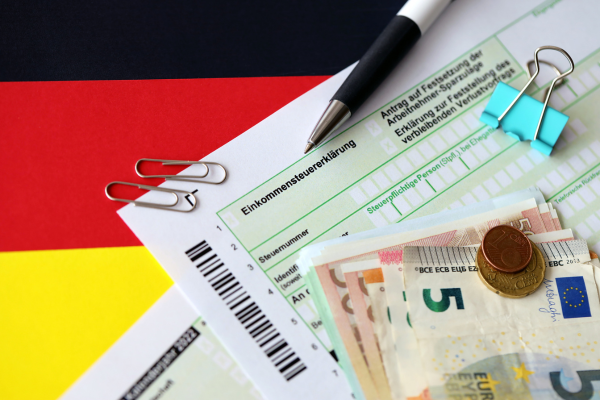Donations, Insurance, and More: How to Maximize Your Tax Deductions in Germany

In Germany, certain expenses, such as donations and insurance premiums, are tax-deductible, allowing you to reduce your taxable income and lower your tax bill. Understanding how to maximize these deductions can lead to significant savings. This blog post will explore the different types of tax-deductible expenses, including donations, insurance premiums, and other costs, providing practical tips on how to claim them.
Outline:
- Overview of tax-deductible donations in Germany.
- How to deduct insurance premiums (health, liability, life insurance).
- Claiming deductions for charitable contributions.
- Other deductible expenses like union dues and church tax.
- Documentation and filing requirements for these deductions.
Overview of Tax-Deductible Donations in Germany
In Germany, charitable donations are tax-deductible, allowing you to reduce your taxable income by supporting approved organizations. Donations to recognized charities, non-profits, and religious organizations can be deducted from your income tax, provided they meet the legal requirements. The maximum amount you can deduct is typically up to 20% of your total annual income. These deductions are part of Germany’s efforts to encourage philanthropic activities and provide financial incentives for charitable giving. Understanding the types of donations that qualify and how to properly claim them can help you maximize your tax benefits while contributing to causes you care about.
How to Deduct Insurance Premiums (Health, Liability, Life Insurance)
Insurance premiums, including those for health, liability, and life insurance, are among the many expenses that can be deducted from your taxable income in Germany. Health insurance premiums, both for statutory and private health insurance, are partially deductible under “Sonderausgaben” (special expenses). Premiums for liability and life insurance can also be deducted, though the rules can vary depending on the type of policy and its purpose. It’s important to understand the specific requirements for each type of insurance to ensure that you maximize your deductions. Properly deducting these premiums can lead to significant tax savings, especially for individuals and families with comprehensive insurance coverage.
Claiming Deductions for Charitable Contributions
Claiming deductions for charitable contributions in Germany requires careful documentation and adherence to specific guidelines. Only donations made to recognized charities and non-profits are eligible for tax deductions. When filing your tax return, you must include donation receipts (Spendenbescheinigung) provided by the charity, which detail the amount donated and confirm the organization’s eligibility for tax-deductible donations. Donations made in the form of money or goods can be deducted, but the process requires accurate record-keeping. By following the proper procedures, you can ensure that your charitable contributions are recognized and deducted from your taxable income.
Other Deductible Expenses Like Union Dues and Church Tax
In addition to donations and insurance premiums, other expenses such as union dues and church tax (Kirchensteuer) are also tax-deductible in Germany. Union dues are considered work-related expenses (Werbungskosten) and can be deducted in full. The church tax, which applies to members of certain religious communities, is also deductible under “Sonderausgaben.” These deductions help reduce your overall tax liability, making it beneficial to include them in your tax return. Understanding the eligibility and documentation requirements for these expenses is key to ensuring they are properly deducted.
Documentation and Filing Requirements for These Deductions
Proper documentation is essential when claiming tax deductions in Germany, whether for donations, insurance premiums, union dues, or church tax. You must keep all receipts, invoices, and relevant documentation to support your claims. For donations, this includes the donation receipt (Spendenbescheinigung) issued by the charitable organization. For insurance premiums, detailed records of the payments made throughout the year are required. When filing your tax return, these deductions should be itemized in the appropriate sections, such as “Sonderausgaben” or “Werbungskosten.” Using Germany’s ELSTER online tax filing system can streamline the process and help ensure that all deductions are accurately recorded.
Disclaimer:
The information provided in this blog post is for general informational purposes only and does not constitute tax, legal, or financial advice. While we strive to ensure the accuracy and timeliness of the information, tax laws are complex and subject to change. We recommend consulting with a certified tax advisor for advice tailored to your individual circumstances. In terms of financial consultation, we collaborate with German Sherpa Financial Solutions, specializing in services for Expats in Germany. Please note that this content does not serve as tax consulting.
Home Office Deduction in Germany: How to Claim It and Maximize Your Savings
Home Office Deduction in Germany: How to Claim It and Maximize Your Savings With the…
Tax Classes in Germany (Steuerklassen): What You Need to Know
Tax Classes in Germany (Steuerklassen): What You Need to Know Germany’s tax system uses tax…
Tax-Free Savings in Germany: Making the Most of Your Allowances
Tax-Free Savings in Germany: Making the Most of Your Allowances Tax-free savings allowances in Germany…
Income Thresholds, Tax-Free Amounts, and Tax Brackets
Income Thresholds, Tax-Free Amounts and Tax Brackets Germany uses a progressive income tax system, which…
Claiming Moving Expenses on Your German Tax Return: What You Need to Know
Claiming Moving Expenses on Your German Tax Return: What You Need to Know Moving for…
How and When to Change Your Tax Class
How and When to Change Your Tax Class Changing your tax class can have a…
How to Deduct Childcare Expenses on Your German Tax Return
How to Deduct Childcare Expenses on Your German Tax Return Raising a child in Germany…
Filing Your Taxes in Germany: Your Options
Filing Your Taxes in Germany: Your Options In Germany, tax returns (Steuererklärungen) are usually due…
Who Can Legally Help You File Your Taxes?
Who Can Legally Help You File Your Taxes? In Germany, only certain professionals are authorized…
Top Strategies to Legally Reduce Your Taxes in Germany
Top Strategies to Legally Reduce Your Taxes in Germany Paying taxes is a part of…
Maximizing Your Tax Refund in Germany: Tips and Tricks for Expats
Maximizing Your Tax Refund in Germany: Tips and Tricks for Expats Getting a tax refund…
How to Optimize Your Tax Class to Save Money in Germany
How to Optimize Your Tax Class to Save Money in Germany Choosing the right tax…
Exploring Tax Deductions: How to Lower Your Taxable Income in Germany
Exploring Tax Deductions: How to Lower Your Taxable Income in Germany Tax deductions are one…
The Best Tax-Saving Strategies for Families in Germany
The Best Tax-Saving Strategies for Families in Germany Families in Germany can take advantage of…
What Can You Deduct? A Comprehensive List of Tax-Deductible Expenses in Germany
What Can You Deduct? A Comprehensive List of Tax-Deductible Expenses in Germany Knowing what expenses…
Understanding Tax-Free Allowances and Flat Rates in Germany
Understanding Tax-Free Allowances and Flat Rates in Germany Tax-free allowances and flat rates are essential…
Claiming Work-Related Expenses: How to Reduce Your Tax Bill in Germ
Claiming Work-Related Expenses: How to Reduce Your Tax Bill in Germany Work-related expenses are some…
The Complete Guide to Deductible Medical Expenses on Your German Tax Return
The Complete Guide to Deductible Medical Expenses on Your German Tax Return Medical expenses can…
How to Deduct Education and Training Expenses on Your German Tax Return
How to Deduct Education and Training Expenses on Your German Tax Return Investing in education…
















